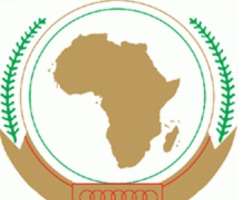INFORMATION SOCIETY IS WHAT WILL ENABLE AFRICA TO MAKE THE LEAP INTO THE 21ST CENTURY- AUC DIRECTOR OF INFORMATION AND COMMUNICATION TELLS AFRICAN EXPERTS OF COMMUNICATION AND ICT

ADDIS ABABA, Ethiopia, August 31, 2015/African Press Organization (APO)/ -- The meeting of experts of the First Specialized Technical Committee (STC) on Communication and ICT (CCICT) has started at the African Union Headquarters in Addis Ababa, Ethiopia. Bringing together work that falls under the African Union's Directorate of Information and Communication (DIC) with that of the Department of Infrastructure and Energy (DIE) this is the first meeting bringing together in a united framework, issues of communication, including the media, branding and information, and Information and Communication Technologies. A total of 31 member states of the AU are attending the meeting.
The meeting's opening ceremony sent a clear call to member states of the African Union to redouble efforts to give Africa the voice to tell the African story, to promote access to information and freedom of expression, to popularise African Union branding and promote Africa's image.
Addressing the meeting's opening ceremony on behalf of the African Union Commission, the DIC Director Mrs Habiba El Mejri Scheikh explained that the information society is now one of the most dynamic social and economic activities of our century. Its added value, she said is unmatched and has a catalytic impact on societal transformation, productivity and innovation; modernization of vital services, such as health, education and transport; and on science and technology. “We are here today because we firmly believe that the Information Society is what will enable Africa to make the leap into the 21st century”, said the Director.
Mrs El Mejri Cheikh recalled that most African countries have developed national policies and strategies to develop the Information. But she noted that, despite the many significant gains, the information society sector in most African countries and the continent in general remains a source of serious concern. There is therefore a need to catch up with the rest of the world.
The Commission of the African Union, in its mission of facilitating and coordinating regional initiatives and other projects, has undertaken a number of important actions, notably in the field of harmonization of the information society policies to control and encourage investments for the development of the continent.
The Director of Special Initiatives Division of the UN Economic Commission for Africa, Ms Fatima Denton also noted that Africa is trailing behind in terms of ICT infrastructure and services. She observed that “broadband enabled services have the potential to create economic and empowerment opportunities and improve the quality of life of millions of people across the continent”. She also commended the regional economic communities for harmonising the legal and regulatory environments.
The head of the Zambian delegation, which was the chair of the outgoing bureau of the STC commended the meeting for its objective of optimising the use of ICTs and communication.
The meeting is expected to discuss on-going projects of the AUC such as the PIDA priority action plan, the project of the Pan African TV and Radio Channels, the AU Branding Campaign, the AU Communication Strategy, the Pan African E network, DoT Africa project. Postal projects, the ICT strategy for Africa as well as internet governance issues among others.
From 3 to 4 September, responsible ministers will meet. They will consider the experts' session report, hold a closed session on Internet Governance, adopt their meeting's report and adopt the Addis Ababa Declaration on communication and ICT.
